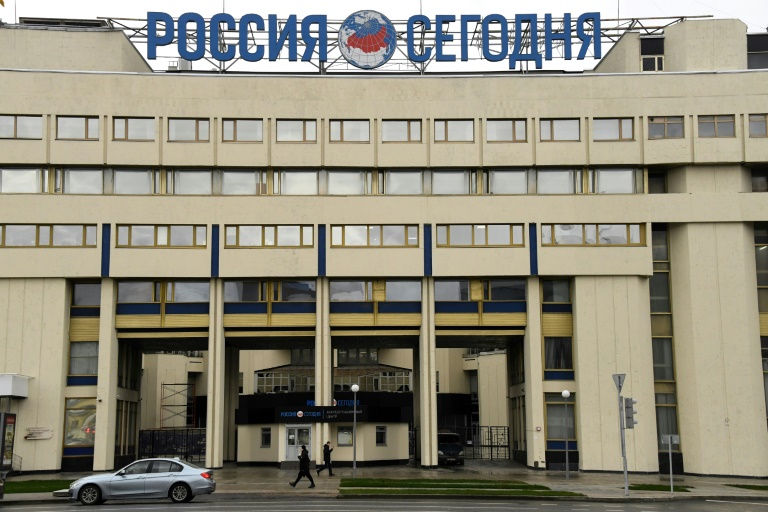
Russian MPs on Wednesday backed new legislation that could force foreign media outlets to register as “foreign agents” in a reciprocal response to US pressure on Kremlin-backed TV channel RT.
Lawmakers approved amendments that would allow any international media that receive financing from abroad to be classified as “foreign agents,” a measure previously used only against NGOs.
The Kremlin praised the move as allowing it to offer a “very harsh” response to attacks on Russian media abroad.
“Any attempts to encroach on the freedom of Russian media abroad… will not remain without response from Moscow – without a very harsh response,” Kremlin spokesman Dmitry Peskov told journalists.
Russia will be able to use the law “to give a timely retaliatory response,” he said.
The law could be used against US media such as Voice of America and Radio Free Europe/Radio Liberty, which receive funding from the US Congress.
Members of parliament have given contradictory statements on whether the law could apply to commercial TV network CNN.
Lawmakers unanimously voted to back the amendments in rushed second and third readings within a few hours on Wednesday.
“A hybrid war has been declared against us and we are obliged to respond,” Communist Party leader Gennady Zyuganov said in parliament.
The lower house of parliament’s deputy speaker Pyotr Tolstoy told the chamber reciprocal measures were “forced” by the actions of the United States, which he earlier said was spitting in Russia’s face.
“They forced us to take these measures,” he said.
The amendments now need to be passed by the Senate and then be signed into law by President Vladimir Putin, after which they will enter force immediately.
‘Selective measures’
The wording of the law is very broad, potentially allowing its use against any foreign media organisation operating in Russia.
Tolstoy told parliament the amendments would not be automatically enforced, but would be selectively applied by the justice ministry.
“You shouldn’t think that after this law enters force… all foreign media in Russia will automatically become foreign agents,” he told parliament.
“We are making it possible… to take selective retaliatory measures – that is the idea of the law, and I hope it will be enforced this way.”
He denied it will affect any Russian media with foreign funding.
Amnesty International has warned the law will allow the Russian authorities “to tighten their stranglehold on press freedom.”
A Russian law adopted in 2012 forces NGOs that have international funding and whose activities are deemed “political” to undergo intensive scrutiny of their finances and staffing and label themselves as “foreign agents” on paperwork and statements.
Many NGOs have closed in response to the legislation.
RT television, which is funded by the Kremlin to give a Russian point of view on international affairs, confirmed Monday it has registered as a foreign agent in the United States, meeting a deadline from the US Department of Justice.
Washington considers RT a propaganda arm of the Kremlin and told it to register its American operation under the Foreign Agents Registration Act aimed at lobbyists and lawyers representing foreign political interests.
The Moscow-based broadcaster has become a focus of the investigations into alleged Russian interference in the 2016 US presidential election.


